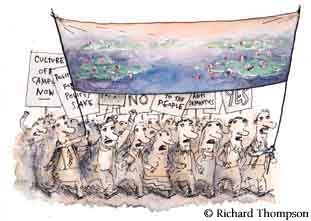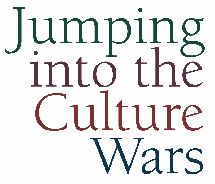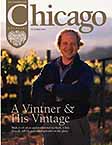The University of Chicago Magazine
October 1997


In addition to nine courses, each student completes a thesis, working with faculty such as Booth and philosophy professor Jonathan Lear. Last February, when the students held a works-in-progress conference to share their work, topics ranged from Kant's quarrel with Herder to genre revisionism in the spaghetti western, and from messengers' speeches in Sophocles' Trachiniai to interdisciplinarity and metaphor. Each presenter offered well-crafted arguments that responded to critics in the field, but also took time to consider the work's broader implications. How might genre revision in the spaghetti western stem from-or influence-canon revision in the academy? What does Kant's 18th-century quarrel with Herder mean for 20th-century Kant scholars?
"The program," says Hoberek, "is producing people who recognize that there are controversies or conversations going on that they can enter," because all around them are "examples of how one goes about doing that-rather than writing in a vacuum and not really knowing how their work may contribute to something out there."
For MAPH, contributing to "something out there" means more than raising the stakes of an argument. To encourage students to apply their work, Graff added other components to the program. One of these was a conference on The Tempest. Working with Hillel Crandus, a high-school teacher turned MAPH student, Graff arranged a mini-conference for high-school seniors, Chicago undergraduates, and MAPH students. In all, 400 participants read the play and several critical essays, then discussed the play in class and with other students by e-mail. On March 8, 100 students gathered in Ida Noyes Hall. Moderators and panelists gently cross-examined each other: Is Shakespeare's play really a record of colonialism? Or is this interpretation dependent on the readers? Can the play be interpreted as ugly colonialist message, yet still be enjoyed as beautiful literature?
By spring quarter, the program had organized a second conference. "Public Intellectuals and the Future of Graduate Study" featured such luminaries as Harper's editor Lewis Lapham; Ellen Willis, a writer for the New Yorker and the Village Voice, and now a teacher at New York University; and Adolph Reed, Jr., a political theorist from Northwestern. U of C faculty participants included Homi Bhabha (English), Jean Bethke Elshtain (social and political ethics), Nathan Tarcov (political science), and Joel Snyder, SB'61 (art history).
In the first session, Snyder and Michael Bérubé, of the University of Illinois at UrbanaChampaign, began to debate the place of intellectuals in the public eye. While Snyder insisted that work written for the masses is by necessity cheapened and diluted, Bérubé challenged academics to extend their work beyond university walls. Later in the day, Lewis Lapham dismissed the entire argument: Public intellectuals, he said, simply don't exist. Public culture, he argued, is mass culture, and academics writing for publications like Harper's or the New Yorker address such small audiences that their work never truly achieves notice in the public eye. Once again, MAPH students were being taught the conflicts.
What was also evident was the way the conference revisited the debates that had raged on MAPH's e-mail list over the previous nine months. Although the students had never debated the public intellectual per se, the conference echoed their discussions about mass culture and their attempts to connect their own work to other critical debates.
In another effort to make such connections, the first cohort of MAPH students went beyond the formal academic requirements and started its own publication, the Chicago Humanities Journal, which debuts this fall. Founder Josh Shaw says that it seemed appropriate for MAPH to have "a venue in which to document debates in humanities and to provide a medium for interdisciplinary work." Although he envisioned the audience as MAPH alumni-people who had some connection to the program and its interdisciplinary approach-he soon realized it would have a larger appeal, especially at Chicago. Several panelists at the "Public Intellectuals" conference agreed to write short pieces for it, and the journal's editors received submissions from students in many departments, as well as one from Jerry Graff.
With the arrival of this fall's crop of MAPH students, the circles of debate should grow, as the students continue to look at how the meanings of culture-along with art, literature, and education-are changing as they watch and write.
Visit the U of C Humanities Department MAPH Web Page
Jenny Adams, AM'94, a doctoral student in English language & literature, works for MAPH as a student mentor.
Other Features:
The fruit of his labor
Year-in, year-out--from bud break to harvest, barrel to bottle--Napa Valley
vintner Chris Howell, AB'75, pursues the perfect wine.
Once & future scenes
America's first professional ecologist was a U of C botanist whose thousands
of lantern slides--used to give students a tour of the nation's evolving
landscapes--will reach new viewers via the internet.
